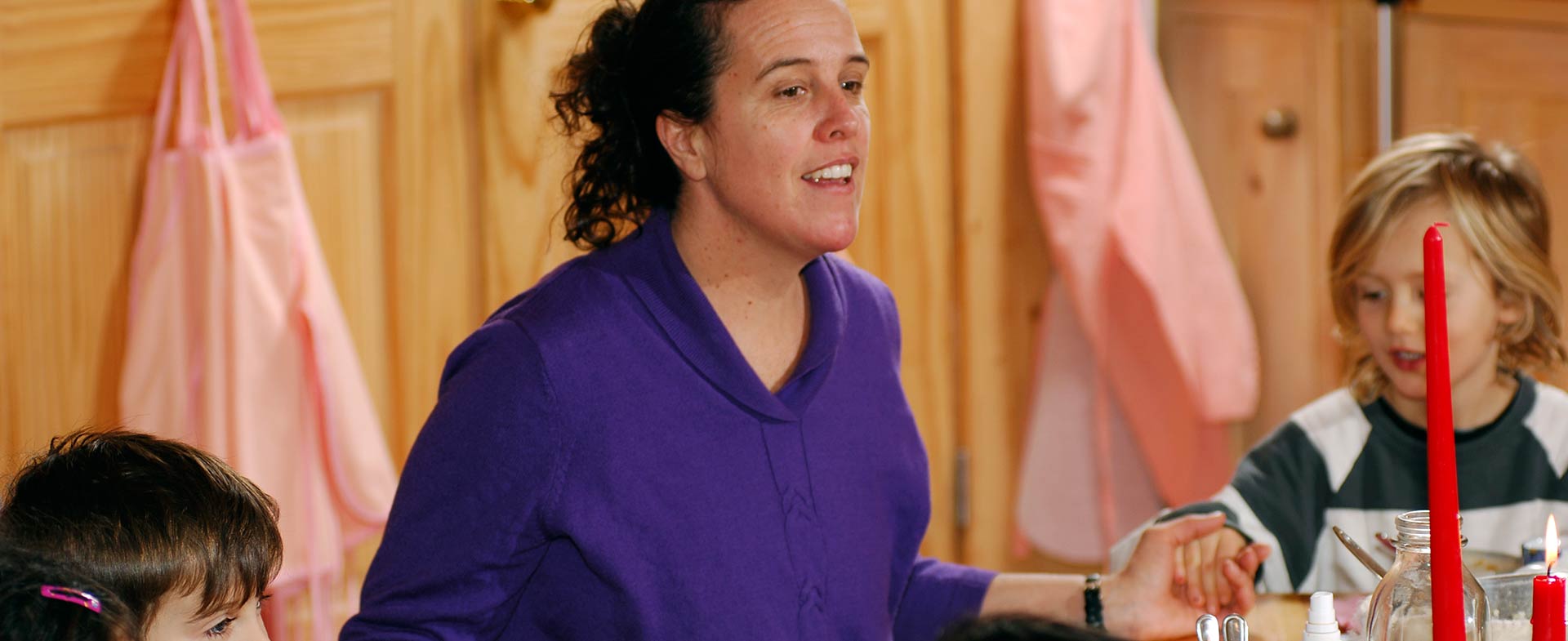
Kindergarten
Our kindergarten, designed for children between 4.5 and 6 years of age, is warm and welcoming. Surrounded by natural wood, and beautiful, soft colours and fabrics, the children engage in handwork such as painting and drawing. Academic excellence is fostered through building a strong foundation of the basic skills necessary for future success like eye-hand co-ordination, tracking, sensory integration, sequencing, appreciating the beauty of language, and other basic skills. In this truly natural, loving and creative environment the children are given a range of activities and the structure that help them prepare for the next phase of school.
Rhythm is an important educational principle. The day is structured to provide the child with periods of activity and periods of rest along with teacher-led activities and creative play. Seasonal activities celebrate the cycles of the year, while daily rhythms help the child feel secure in knowing what to expect. For example, energetic outdoor activity is followed by more concentrated circle time; creative play is followed by a quiet story. There is a rhythmic alternation between the child’s time (creative play, outside time) and the teacher’s time (circle-time, story).
Working with rhythm helps children to live with change, to find their place in the world, and to begin to understand the past, present and future. It provides a very real foundation for the understanding of time – what has gone before and what will follow – and helps children relate to the natural and human world. Attention to rhythm promotes healthy development and leads to a balanced life later.
Young children need to experience the relevance of their world before they separate themselves from it and begin to analyze it in a detached way. Consequently, learning is integrated rather than subject-based. Mathematics and use of mathematical language, for example, might take place at the cooking table, where food is prepared (thinly sliced carrots make wonderful natural circles and have the added virtue of being able to be eaten later in soup!) and concepts such as addition and subtraction (more or less), weight, measure, quantity and shape are grasped in a practical manner as part of daily life.
Mealtimes offer an opportunity for the moral and social learning as children share the food they have helped to prepare.
Through movement games, children recognize and recreate patterns. Natural objects such as acorns, pine cones, stones and shells are sorted, ordered and counted, as part of spontaneous play. Learning experiences for the young child are not separated from the business of daily living: learning gains meaning by its relevance to life.
Similarly language and literacy are taught through a love of story and song. Children develop competence in talking, listening and in the ability to use words with confidence. They speak freely and learn to listen to others. Proper speech and the development of oral skills are promoted. We focus on the oral tradition and the children listen to many wonderful tales. A well told story creates an appreciation for the human voice and the beauty and rhythms of language. It also helps build vocabulary and develop memory. Children leave the MorningStar and Huckleberry kindergartens with a rich and varied repertoire of songs, stories and poems.
